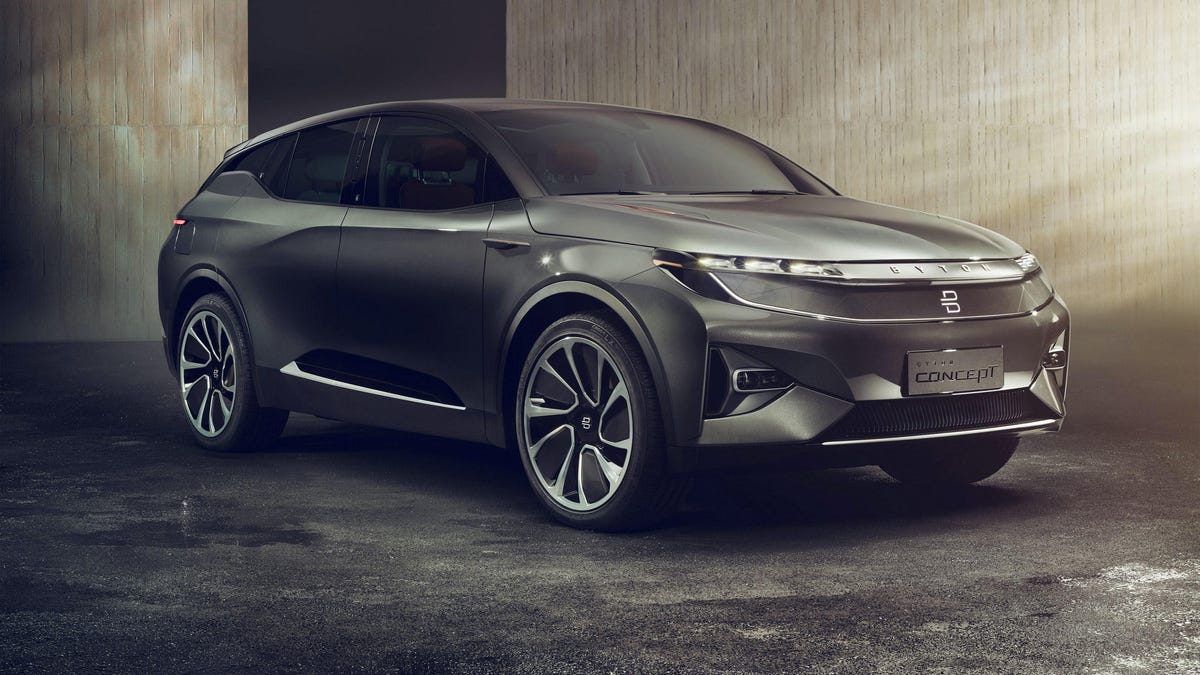Byton still confident its EVs will hit the US in 2020, report says
Its main assembly facility will be in China, and thus subject to US tariffs, but the startup automaker doesn’t seem concerned.

Some Chinese-backed automakers have been having a rough go of it lately, but Byton wants you to know that everything is just peachy in its neck of the woods.
Byton is still on track to deliver its first group of electric vehicles in the US in 2020, Automotive News reports, citing an interview with Byton CEO and co-founder Carsten Breitfeld.
"Our basic principles have been, be credible, be down to earth, be realistic," Breitfeld told AN at the 2018 Los Angeles Auto Show . "You have to show the world you can deliver, because if not, you lose support from investors and partners and cannot build up a credible brand."
Byton's first vehicle, the M-Byte electric SUV, is slated to go on sale in China in the latter half of 2019, with US sales to begin one year after that. The K-Byte sedan is the second vehicle in Byton's portfolio, and that's slated to come online in late 2020. Beyond that, the company hasn't really talked about future products, and that's probably on purpose, based on what Breitfeld said in his interview.
"There are other startups saying they will do a new car every year and they'll sell 2 million cars a year and so on," Breitfeld said to AN. "At some point in time, some investors came back to us and said that others had a much better story and that ours is not very sexy. But today, looking back, there's a big difference. Our story is still the same."
To start, Byton will assemble its vehicles at its inaugural plant in Nanjing, China. But that could hit a snag, especially if Presidents Trump and Xi continue to lob tariffs back in forth as a prelude to trade negotiations. To get around that potential problem, Breitfeld told AN that the company might set up an assembly plant in South Korea or the US.
That might be a problem, but according to Breitfeld, selling cars isn't the company's sole goal, because that may not even be profitable. "We'll start with that at the beginning, but that's not a sexy business model. Margins are down and maybe going lower," Breitfeld said in his interview. "The real business is in using the car as a platform, and using the car to create a sales channel to sell digital content."
We're still years away from Byton's dreams becoming reality, but so far the company seems like it's on solid ground and isn't getting too far ahead of itself. Many startups are keen to overpromise and underdeliver, but Byton seems determined to flip that script.
Byton M-Byte: All you need to know.
Self-driving cars: Stay up to date with the latest AV news.

